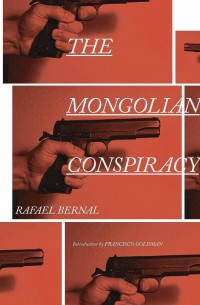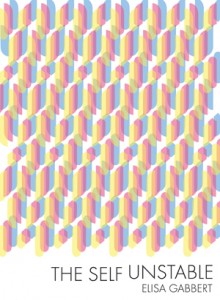Poets make that guap, right? Easy money. At least that’s what my nine to five office co-workers keep telling me.
It’s easy being poor, it’s much harder to be a ri¢h poet. People who are not poets have no idea how real the struggle is. Major label publishers, celebrities, Jay-Z– everyone wants a piece of the lyrical genius. It can be super overwhelming. Don’t even get me ranting about all those diamonds that get thrown at us on our way to the subway for the evening commute. Yowch! Thankfully, those precious stones can be ground up and sprinkled on cat litter to make that shit shine.
Today starts the first in a series profiling real life rich poets so that you get to know them, understand their pain. Please enjoy this poem by Elizabeth Foster and recognize that it’s hard out here for a ri¢h poet.
READ MORE >
Random / 16 Comments
May 7th, 2014 / 7:56 pm
 The Mongolian Conspiracy
The Mongolian Conspiracy
by Rafael Bernal, translated by Katherine Silver
New Directions, 2013
192 pages / $14.95 buy from Amazon or Powell’s
Rating: 9.0
The Mongolian Conspiracy, by Rafael Bernal, brings slick Noir tropes to 1960’s Mexico City. Ostensibly a political thriller, the action follows Filiberto Garcia, an aging veteran of the Mexican Revolution and killer-for-hire contracted by the police to investigate an assassination plot. These rumors, apparently originating from Mongolia, send Garcia on the prowl through the city’s gritty Chinatown, and as the plot unravels: farther and farther a field. The scenes trend pulpy: Garcia seduces a possible femme fatale, he shoots up an opium den, and he brings the investigation to a very Sam Spade finish. The novel has the sheen of 60’s political thrillers (The Day of the Jackal, Z, Topaz), especially as Garcia meets operatives from the CIA and KGB. But these encounters, madcap and witty, capture the tone that makes The Mongolian Conspiracy more compelling than any ordinary political thriller.
READ MORE >
Comments Off on The Mongolian Conspiracy
May 6th, 2014 / 12:00 pm
Today I spoke with Jeremy Hight, the “curator” of a project called Ethan Has Nowhere To Go. What started as a short story became a multimedia online interactive experience once Hight killed the author by removing himself from the project, and handed over the creative reins to a number of artists. You can check out the project at Unlikely Stories.
Alexandra Naughton: Please tell me about your project.
Jeremy Hight: I wrote a 12 page short story called “Ethan Has Nowhere To Go.” Did a dozen drafts, had a writer’s group workshopping. The whole deal. Then it hit me when it was about be published– invert it.
READ MORE >
Interviews / Comments Off on Ethan has nowhere to go, so he killed the author
May 6th, 2014 / 11:00 am
There was a year during which I essentially told my brain that the way to become a writer was to get published by McSweeney’s Internet Tendency. During that year I wrote a loooooootttt of things that are totally unusable for any other place and which were trying to get the right tone for that site. In retrospect, I fully blame the editor for always sending me back kind and personalized rejections which encouraged me—or at least I thought they did—to try again. Eventually, I stopped writing Open Letters, Monologues and Lists, but I think I owe my decision to try writing more to that editor and his charming rejections.
READ MORE >
 The Self Unstable
The Self Unstable
by Elisa Gabbert
Black Ocean, Nov 2013
96 pages / $14.95 Buy from Amazon or Black Ocean
Already, I have the problem of memory. Memories act precariously when they are the palate of thought. Example: I can’t remember when I first read Elisa Gabbert, but I remember the rough poetics of The French Exit. Bodies and minds took beatings. The words violenced through the poems. I was especially captivated by the sexual aggression. A voice attempted to transcend the self through bodily destruction, like autoerotic asphyxiation. Like a lack of could force the mind out of the body.
The Self Unstable exemplifies a bodiless self. Gabbert explores how thought dictates action, then action dictates belief. Memories lead the way because they create an illusion of understanding. “It can almost ruin you, the belief that you can choose,” (3). Language shreds the roles of identity. Her Twitter-brain essays/poems fragment connections. Art, games, leisure, love, sex – everything that fills our time – seem like activities to enjoy. Instead, they [dis]assemble the violent act of creation.
Animals, news, dreams pollute the mind. Where is placement? Ego feels displaced. Ego never had a place. Like grandparents coming through Ellis Island, body and mind attempt to locate a self. Look, my Dad found the papers. The family’s entrance was legitimate. At least on my Mom’s side. Names were misspelled, but sound has barely changed. The art of phonetics assert an idea of WHO. Some sort of declaration of I AM.
Generations exist as fragments collaged through shared behaviors. Family is why I’m here, but is family ME? Who has a choice in creation? Forget ideals, love and sex are “enjoyment of adversity,” (67). We ruin others. Relationships start based on these fallacies. Gabbert explains that a shared a taste in music creates the idea sameness. My mixtape to you means SOMETHING.
READ MORE >
4 Comments
May 5th, 2014 / 10:00 am
 Ascension
Ascension
by Nikki Darling
Digital poetry chapbook / Available at Light & Wire Gallery
The ebook Ascension by Nikki Darling is beyond auto-biographical. I don’t even think it is an ebook. I don’t think it is an ejournal or an ediary. What it is . . . is a mess.
Nikki is a mess.
Her hair is usually a mess.
She has dirty feet. And these are not purposeful things. Nikki’s messiness is a direct result of the time she dedicates to personal branding in other areas. The disorder is a result of neglect.
Nikki frequently neglects form and tries to bypass narrative.
Or so she would have you think.
This ebook is an electronic collage. A tribute to all things Nikki.
A dip inside of her brain.
And I have to admit I don’t like it there.
The music is too old. It makes me uncomfortable. The songs are too polished, thick and unbending with old school veneer. Why can’t she just write a story, a chap book for my hands?
Why poems?
Why the appropriation?
Why the mess?
I’m always tempted to tell Nikki to clean herself up. To clean up her work. To pull up her bra straps. To put on a bra. But her poems won’t wear one.
The inclusion of screens, like mini-experiential pockets of havoc, give insight to the cacophony of song that blares in Nikki’s mind. Music is integral to her work and it isn’t just the sound. Ascension reflects her obsession with all aspects of the music including the performers, the presentation, and the cultural context. The performers, or the artists that Nikki focuses on are none that I am terribly familiar with. They aren’t ones that I enjoy. They are gender-benders and here is the crux of my discomfort. Nikki has an eye for cultural construction and is especially gifted at lifting images and iconography of the past decades up and layering them against one another. Again, this is a collage. There is no clear delineation of gender. Her preference for boys is met with a proclivity for presenting them in feminized forms. Think long hair, short shorts, gliding around on skate boards.
READ MORE >
Comments Off on Ascension by Nikki Darling
May 2nd, 2014 / 10:00 am

 The Mongolian Conspiracy
The Mongolian Conspiracy  The Self Unstable
The Self Unstable Ascension
Ascension